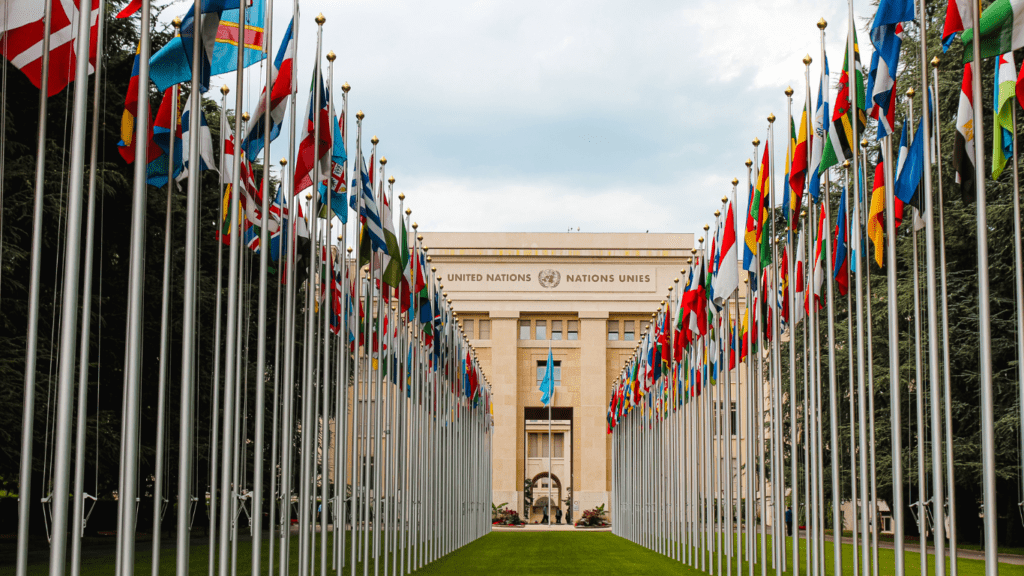Political Landscape Overview
Today’s political landscape is a tapestry of intricate connections and competing interests. Various global and domestic factors shape the political environment. Key issues like international trade agreements and diplomatic relations influence decisions worldwide. As technology advances, cyber security and digital privacy become pressing concerns for governments.
Economic policies play a crucial role in shaping national priorities and social welfare. Decisions surrounding taxation, healthcare, and education impact citizens’ daily lives. These policies often spark debates and require collaboration among different political entities to create effective solutions.
Environmental challenges demand urgent action from policymakers. Climate initiatives span local, national, and international efforts to mitigate effects and transition to sustainable practices. Policymakers face pressure to balance economic growth and environmental responsibility.
Social justice movements continue to bring attention to issues like racial equality, gender rights, and immigration reform. By advocating for policy changes, these movements drive progress and reshape societal norms. Political leaders engage with these subjects to address both historical inequities and current injustices.
Understanding the political landscape requires keeping informed on these ever-evolving topics. This awareness fosters informed discussions and contributes to an engaged democratic society.
Economy and Trade Policies

Economic policies shape national landscapes, affecting both international relations and local communities. Trade agreements determine the flow of goods and services, impacting economic stability.
Recent Developments
Several pivotal events have recently reshaped the global trade landscape. The United States-Mexico-Canada Agreement (USMCA) replaced NAFTA, altering trade obligations among North American countries. EU-U.S. negotiations faced hurdles over tariffs, while tensions between the U.S. and China continued with new tariffs imposed since 2018, affecting global supply chains. Government stimulus measures, in response to the pandemic, impacted economic policies worldwide, with countries like the U.S. and EU deploying relief packages that shifted fiscal strategies.
Future Projections
Anticipated changes in trade policies could redefine economic strategies. Attention to sustainable trade and digital commerce grows, with new regulations emerging that emphasize technology and environmental considerations. Countries may pivot to address carbon tariffs as climate change priorities influence economic negotiations. The integration of emerging markets in global trade frameworks could spark shifts in geopolitical alliances and regulatory standards. These developments will likely require adaptations to current economic models to ensure continued growth and cooperation.
Climate Change and Environmental Policies
Climate change remains a central focus in political discourse. Environmental policies are reshaping national and global priorities to combat ecological challenges.
Global Initiatives
Conferences like the United Nations Climate Change Conferences (COP) drive international cooperation.
- The Paris Agreement, with nearly 200 countries committing to limit global warming, exemplifies these efforts.
- Various nations are increasing commitments to clean energy, aiming to reduce carbon emissions significantly.
- The Green Climate Fund also plays a vital role in supporting developing countries, enhancing climate resilience and sustainable practices.
National Strategies
Countries are adopting distinct approaches to tackle climate issues. In the United States, the Inflation Reduction Act allocates funds to promote renewable energy and reduce greenhouse gases. The European Union plans to implement the Fit for 55 package to cut emissions by 55% by 2030. China, the largest emitter, targets carbon neutrality by 2060 through investments in solar and wind power. These strategies align with broader goals to mitigate climate impacts and secure a sustainable future for the planet.
Healthcare Reform
Healthcare reform dominates today’s political agenda, reflecting challenges and proposed solutions shaping the discourse. It’s pivotal to understand these factors to grasp the wider political implications.
Current Challenges
Many hurdles complicate healthcare reform. Rising costs and limited access persistently strain individuals and systems. For instance, the U.S. healthcare expenditure reached about $4.1 trillion in 2020, according to the Centers for Medicare & Medicaid Services (CMS). Insurance coverage gaps leave millions without essential services. Also, disparities in quality care are evident, with marginalized demographics facing the brunt. The opioid crisis and mental health care deficiencies highlight serious shortcomings in existing frameworks.
Proposed Solutions
Several strategies aim to address these issues. Policymakers advocate for expanding public health insurance options to close coverage gaps. Notably, discussions around Medicare-for-All or similar models propose comprehensive change. Investment in preventive care could reduce long-term costs and improve outcomes. Emphasizing telehealth services is key, especially post-pandemic, to enhance accessibility. Some states have piloted successful initiatives, integrating mental health and substance abuse treatment into primary care frameworks. Increased funding for healthcare infrastructure, especially in underserved areas, promises to bolster system efficiency and equity.
Immigration Policies
Immigration policies are a significant focus of current political discourse. Nations grapple with balancing border security with humanitarian concerns.
Policy Changes
Governments worldwide are revisiting immigration policies to address current challenges. In the U.S., the Biden administration is reviewing the Deferred Action for Childhood Arrivals (DACA) program to protect young immigrants. Simultaneously, efforts to reform asylum procedures aim to streamline processes while ensuring fairness. Across Europe, countries are tightening border controls due to migration pressures bolstered by crises in the Middle East and Africa. The United Kingdom’s post-Brexit landscape has seen a shift in immigration policies, promoting skilled worker visas to influence the domestic labor market.
Social Impact
Immigration significantly affects societal dynamics, shaping demographics and cultural landscapes. In many areas, immigrants contribute to economic growth by filling critical labor gaps. However, social tensions can rise when communities perceive immigrants as competitors for resources or jobs. Policies that facilitate integration, such as:
- language
- job training programs
- help mitigate these challenges
Studies indicate that diverse societies experience broader cultural enrichment and innovation. Promoting inclusive policies fosters community cohesion and reduces xenophobia, enhancing overall societal well-being.
Technological Advancements and Cybersecurity
Technological advancements shape contemporary politics, driving changes in policy-making and governance. Cybersecurity emerges as a critical issue in this digital era.
Innovations in Politics
Innovative technologies like artificial intelligence and blockchain offer new avenues for political engagement. AI helps in analyzing vast data sets to guide policy decisions, offering insights into voter behavior and public opinion. Blockchain ensures election integrity by providing secure, transparent voting systems. These innovations promote efficiency in administrative processes and foster citizen participation. Online platforms increase accessibility to political discourse, allowing for broader public involvement in discussions on key issues.
Challenges in Cybersecurity
The rise of digital platforms brings significant cybersecurity challenges, threatening national security and personal privacy. Cyberattacks on government infrastructure can disrupt essential services, compromise sensitive data, and undermine public trust. High-profile breaches emphasize the need for rigorous cybersecurity measures. Governments face challenges in protecting against these threats while promoting technological innovation. Developing robust cybersecurity strategies, enhancing international cooperation, and investing in advanced security technologies form essential pillars to counter these evolving threats.
Social Justice and Equality
Social justice and equality remain at the forefront of political discussions, affecting policy-making processes and societal developments globally. These issues drive movements, protests, and legislative efforts, pushing for systemic change and increased inclusivity.
Movements and Protests
Social movements and protests play a vital role in advocating for social justice. Recently, the Black Lives Matter movement has gained global momentum, highlighting racial injustice and police brutality. Women’s rights movements continue to fight for gender equality, focusing on issues like equal pay and reproductive rights. LGBTQ+ advocacy has successfully pushed for significant legal changes, such as same-sex marriage legalization in many countries. These grassroots movements raise public awareness and influence politicians to address systemic inequalities.
Legislative Measures
Governments are enacting legislative measures to address social justice issues. Legislative bodies worldwide have approved policies aimed at combating discrimination, improving gender equality, and protecting minority rights. For example, the U.S. introduced the Equality Act to expand legal protections against discrimination based on gender identity and sexual orientation. European countries are implementing equal pay laws to reduce the gender wage gap. Additionally, various nations are reforming their immigration systems to ensure fair treatment of migrants and refugees. These measures demonstrate a commitment to fostering equality and reducing societal disparities.


 ____________
____________
